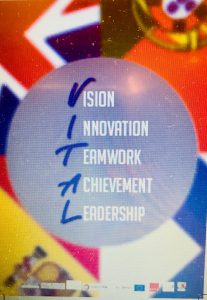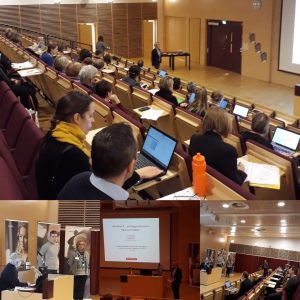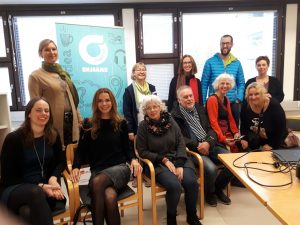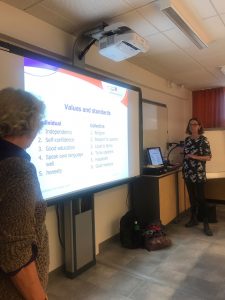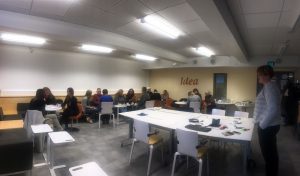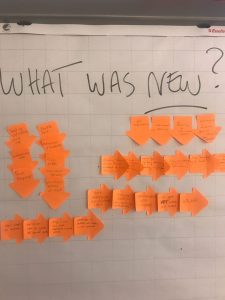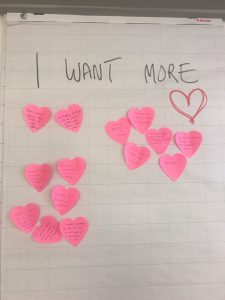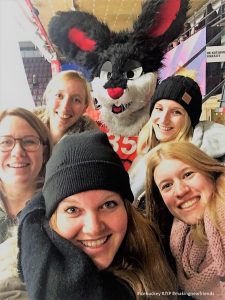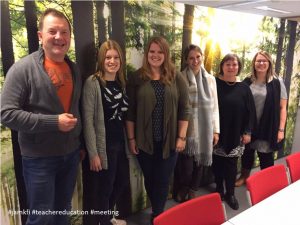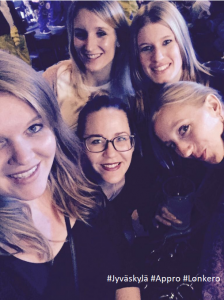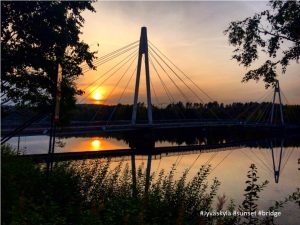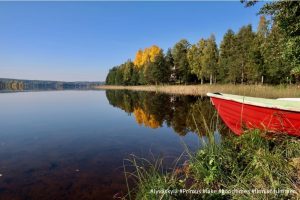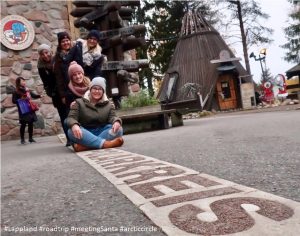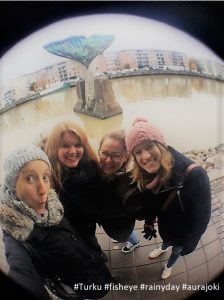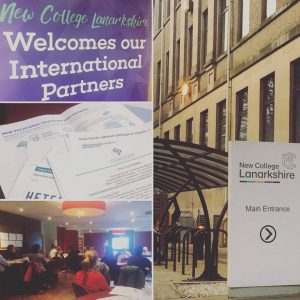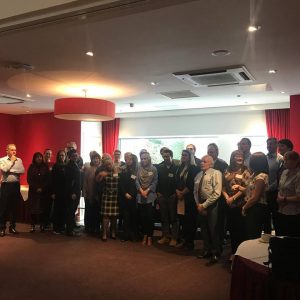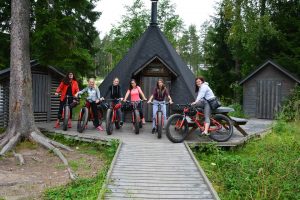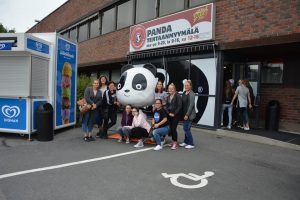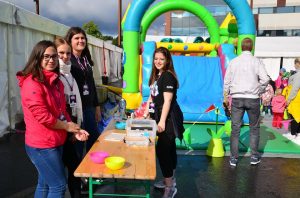Iso joukko ammatillisen koulutuksen yrittäjyyskasvatuksen ja kansainvälisyyden kanssa tekemisissä olevia ihmisiä kokoontui Jyväskylään 19.1.2018 esittelemään em. teemoihin liittyviä hankkeita ja kehittämistoimia. Tilaisuus oli erittäin keskusteleva, siitä kiitos kaikille oppilaitosten sekä mm. Kaakkois-Suomen ely-keskuksen ja Koulutuksen tutkimuslaitoksen edustajille.
Seminaarissa esiteltiin useiden oppilaitosten toteuttamia yrittäjyyttä ja kansainvälisyyttä yhdistäviä hankkeita. Yksi esillä olleista hankkista oli pohjois-irlantilaisen Norther Regional Collegen koordinoima VITAL – vitality, innovation, teamwork, achievement and leadership, jossa Gradia on myös mukana. Hankkeen toimijat Mari Seppänen (sote), Ahti Tunturi (kone- ja tuotantotekniikka) sekä opiskelijoiden työpajaan 2017 osallistunut ensihoidon opiskelija Niko Laakso kertoivat hankkeen tavoitteista ja toiminnasta.
Päivän antia tarkalla korvalla kuunteli myös Jyväskylän Ammatillisen opettajakorkeakoulun koulutuspäällikkö Juha Hautanen. Hän summasi päivän päätteeksi antia seuraavasti:
Mitä on yrittäjyys? Se on ympäristön aktiivista seuraamista, mahdollisuuksien havaitsemista ja niiden hyödyntäminen. Yritys on vain yksi tapa toteuttaa sitä. Siihen tarvitaan rohkeutta ja erityisesti sitä. Pitää ottaa vastuu omasta elämästä. Yrittäjyys on aktiivista toimintaa. Siksi myös sen opiskelu on sitä.
Leave the building (Steve Blank): Luokkahuoneessa on vaikea oppia yrittäjyyttä. Siellä on asiakkaat. Meidän tulee tarjota turvallisia paikkoja yrittäjyyden harjoittelemiseen sekä siinä onnistumiseen ja epäonnistumiseen. Vähän kuin vauvaa tuetaan kävelemään oppimisessa. Tunne asiakkaasi. Mitä he tarvitsevat, mutta myös mitä sellaista he haluavat, mutta eivät osaa sanoa.
Keskity oppimisen suunnitteluun opetuksen suunnittelun sijaan. Oppilaan tavoitteiden saavuttaminen on kaikkein tärkeintä ja opettajien tehtävä on auttaa siinä. Jos hän ei tiedä mitä hän haluaa, niin meidän tehtävä on auttaa sen määrittelemisessä. Siinä voi käyttää hyväksi mm. Guy Kawasakin Sweet Spot määritelmää.
Yrittäjyys on matka omien unelmien saavuttamiseksi. Oppilaitokset auttavat tulkitsemaan sen, mitä maailma tarvitsee, mutta ennen muuta kehittymään hyväksi osaajaksi.
Yrittäjyys on osa nykyistä ja tulevaa opettajuutta. Se on valmentavaa ohjausta. Oppija vastaa omasta tulevaisuudestaan ja oppimisestaan ja opettaja tukee sitä. Silloin myös opettajan tulee yrittäjähenkinen. Se tarjoaa mahdollisuuden myös opettajalle matkustaa kohti omia unelmia. Silloin voi vaikuttaa omaan työhönsä vaikuttaviin päätöksiin, voi käyttää ja kehittää omaa osaamistaan sekä tehdä todella merkittävää työtä tukemalla toisten haaveiden toteutumista.
Yrittäjyys on kansainvälisyyttä, sillä se ei tunne maantieteellisiä eikä poliittisia rajoja. Sitä tehdään siellä missä asiakkaat ovat. Sitä tehdään monipuolisten osaajien kanssa. Heidän kansalaisuuksien kirjo on enemmän rikkaus kuin rajoitus.
Kansainvälisyys on myös rohkeutta. Rohkeutta kansainvälistyä, kohdata ja kokea uusia ihmisiä ja kulttuureja. Kansainvälisyys on myös reitti uusiin innovaatioihin kuten Richard Florida todistaa. Kansainvälisyys on myös osa uteliaisuutta. Ilman uteliaisuutta ei mitään uutta synny.
Yrittäjyys, kansainvälisyys ja oppiminen luovat hyvinvoivan tulevaisuuden.
Lisätietoja: Rea Tuominen, kv.suunnittelija p.6159
